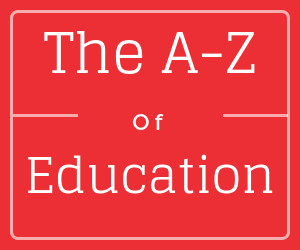Teaching & Learning Strategies, Concepts, and Terms That Every Teacher Must Know: Letters CR

To be considered a competent educator, there are almost 2000 strategies, concepts, and terms that you must know. However, since teachers wear so many hats, who has the time to learn them all? Don’t worry; we have you covered. In this series, we will discuss all the teaching and learning strategies, concepts, and terms that you need to know to be considered an effective educator. There are over 70 articles in this series, so pace yourself. We recommend reading one piece per weekday, which will allow you to complete the series in three to four months. We hope you enjoy it.
Click here to read all the articles in this series.
Creative Atmosphere A set of expectations in which creativity is encouraged, protected and rewarded.
Creative Dramatics Classroom activities designed to inspire imagination, outside-the-box thinking and alternative means of approaching a problem.
Creative Writing A style of writing which is often rooted in the writer’s experiences, including forms such as fiction, drama, and poetry.
Creativity An individual’s ability to develop unique ideas or combine ideas to in a new or different way to solve problems or develop new forms.
Credentials File Describes a file containing your resume and cover letter, your letter of recommendations and references, your transcripts and test scores, and your digital portfolio, if applicable.
Credit Recovery Allows students to retake classes online that they have failed in person, helping them remain on track for graduation. Online credit recovery was introduced about a decade ago, and it has since become a booming business. School districts have experienced soaring graduation rates, leaving companies competing to sell virtual courses to districts across the nation.
Credits Units of measurement that a university uses to convey that a student has completed courses that are needed for their degree program.
Criterion-Referenced Assessment Criterion-referenced testing has historically been preferred by educators over norm-referenced assessment. In this type of testing, students are tested to ascertain how they fair in demonstrating specific knowledge and abilities. Rather than being compared against other students, the results are compared against previously developed levels of knowledge and achievement.
Criterion-Referenced Tests Are tests in which the students being tested are not compared to a norm-group, but rather are required to reach a predetermined standard. All students may be required to achieve an average above a certain percentage or to obtain full marks to be considered as having successfully completed the assessment. These tests are generally suited to specific testing objectives with definite outcomes.
Criterion-referenced The comparison of a student’s results on a standardized test to his or her prior assessments on a certain topic or behavior to measure progress.
Criterion-Related Evidence A means to measure the validity or effectiveness of a given evaluation method by comparing the scores in one test to those of another. The degree of accuracy of a test increases the closer its scores correlate to the scores of another assessment criteria of a related attribute.
Criterion-related Validity The reliability of a test in measuring a criterion. Validity can be established by a correlation between scores on the test being assessed and an accepted test of the same type.
Critical Literacy Is a collection of dispositions and skills that cultivate innovative teaching, critical thinking, and active inquiry. Critical literacy assists students in thinking critically about the things that they read, instead of just brushing the surface.
Critical Reading The ability to examine, analyze, and raise meaningful questions about the validity of an author’s message and the strength of the perspectives or arguments put forth.
Critical Theory Is a philosophy of education that analyzes institutions, organizations, and instruction regarding power relationships. According to proponents of critical theory, schools are controlled by the powerful, wealthy upper class that marginalizes the lower classes by using their control to maintain or reproduce their favored position on an issue. The supporters of critical theory strive to empower subordinate classes by analyzing social and educational circumstances in schools and society. They draw attention to exploitative power relationships such as determination or marginalization to foster change.
Cross-Grade Grouping Also called the Joplin Plan. A strategy for grouping students in class with students one grade higher for part of their school day.

